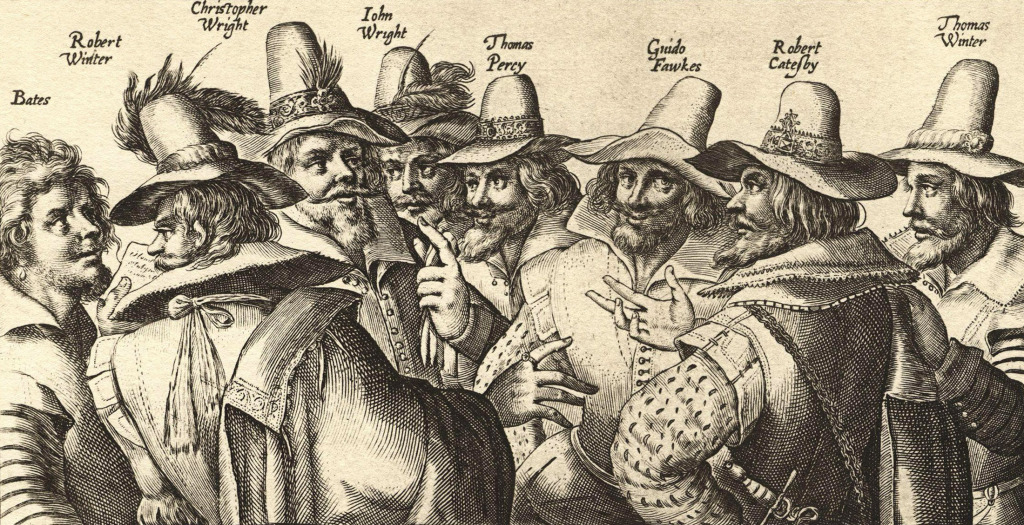November 5th: Not Just Any Old Day!
Last week saw fireworks explode over British skies for November 5th (bonfire night) – I thought I would explore and elaborate on the history of this very night, and uncover why Mr. Fawkes still remains one of Britain’s most hated villains of all time, almost 400 years after his demise. Britons often commemorate this night, as it signifies Guy Fawkes’ involvement in the gunpowder plot in 1605.
Fawkes and the plotters had a plan. However, the plan fell through. Fawkes was arrested on the night of November 4th for attempting to murder King James I, demolish the Houses of Parliament with gunpowder and execute royal leaders. Why? Well, Queen Elizabeth I introduced laws against Roman Catholics. Fawkes was one of the few Catholics who felt they were mistreated. Fawkes had high hopes the King would intervene but had set himself up for disappointment as King James let things be. Guy Fawkes’ frustration was what led him to help plan one of the greatest internal “terrorist” attacks that this country has ever known.
 Allow me to present four interesting facts about Guy Fawkes you probably weren’t aware of:
Allow me to present four interesting facts about Guy Fawkes you probably weren’t aware of:
- According to The Telegraph, Guy Fawkes has an island named after him. Located in the north west of Santa Cruz (Galapagos islands), two inhabited lands are named ‘Isla Guy Fawkes’ or ‘Guy Fawkes island.’
- Fawkes liked to be identified with an Italian nickname. At 21 years old, he was a devout Catholic. While he was abroad in Italy, it wasn’t long until he was known as ‘Guido’. When the King’s men captured him, Fawkes identified himself as ‘John Johnson’. He was tortured, and unwillingly signs his confession form, which confirmed his role in the Gunpowder plot. He signed it ‘Guido Fawkes.’
- Once a year, the Houses of Parliament check for people hiding with explosives. A specialist is allocated to make sure there’s nobody lurking in the cellars; it’s safe to say this has become a tradition.
- The cellar that was once known as Fawkes’ hideout no longer exists. It was demolished in a fire in 1834. The shock was too overwhelming for the medieval Houses of Parliament.
Guy Fawkes’ intentions may have been flawed, but I think it’s fair to say that he was a brave man. A man who had guts, and fought for what he thought was right!

